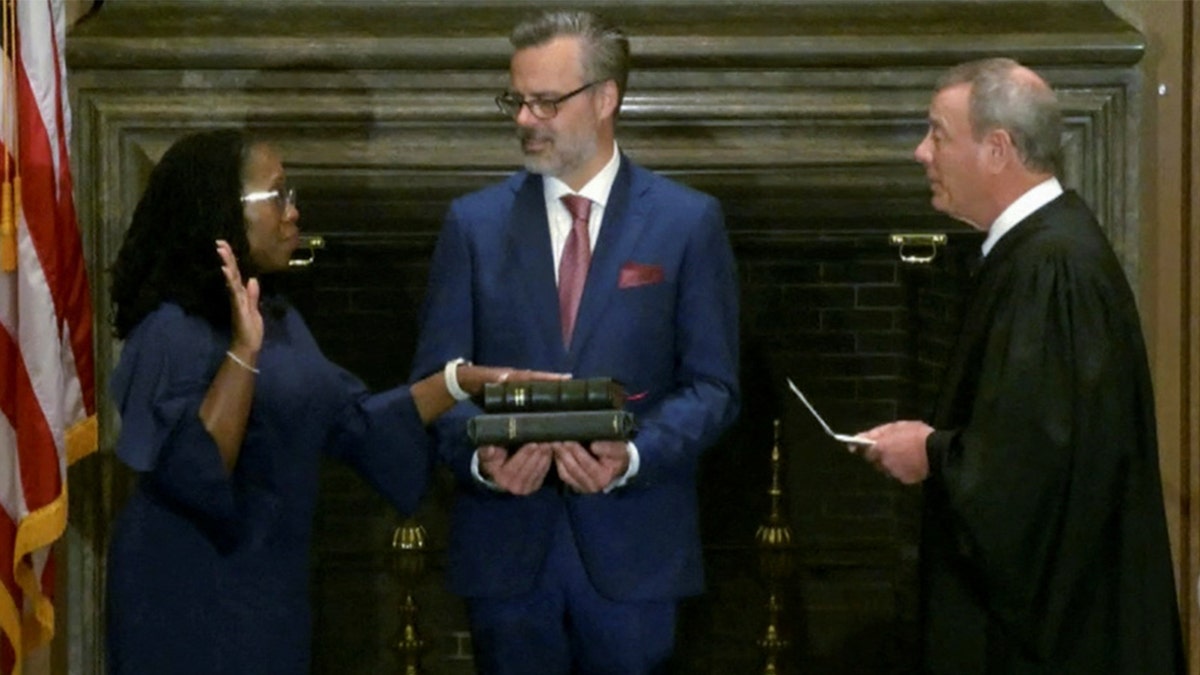A recent Washington Post article delved into the starkly different ancestral backgrounds of Supreme Court Justice Ketanji Brown Jackson and her husband, Patrick Jackson, highlighting the interwoven history of slavery and freedom in their families.
The article revealed that Justice Jackson's ancestors were enslaved after arriving in Charleston, South Carolina, from Trinidad. Conversely, Patrick Jackson's ancestors, including Mayflower passengers, were granted land and housing upon arrival in Plymouth, Massachusetts. This historical juxtaposition underscores the complex legacy of race and privilege in America.

The Post further explored the family history of Patrick Jackson, tracing his lineage back to prominent figures like King Edward I of England and a signer of the U.S. Constitution. Genealogical research cited in the article also uncovered a connection to Peter Chardon Brooks, one of the wealthiest men in 19th-century New England, whose fortune was partially built on insuring ships involved in the slave trade. Additionally, Patrick Jackson's maternal ancestors reportedly owned a significant number of enslaved people in the South, and one ancestor served as a Confederate soldier.

The article sparked commentary on social media, with some questioning the relevance of examining the couple's ancestral history. Florida Governor Ron DeSantis' press secretary, Jeremy Redfern, criticized the article's premise, arguing that it framed the couple's relationship through the lens of historical oppression and disregarded their individual experiences.
However, Justice Jackson's family members reportedly expressed a different perspective. Her uncle, Calvin Ross, emphasized the importance of love and acceptance in their relationship, stating that rewriting history is impossible. Justice Jackson herself acknowledged the unlikely nature of their pairing in a 2017 speech, highlighting their connection despite their disparate backgrounds. Neither Justice Jackson nor her husband responded to the Washington Post's requests for comment on the article.








